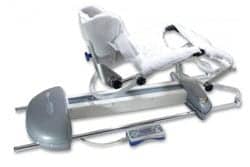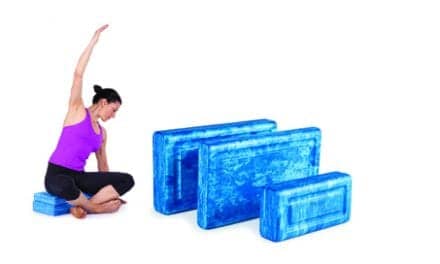Summary:
As more adults focus on improving their health in 2025, experts emphasize the importance of patients maintaining fine motor skills through targeted exercises and recreational activities to preserve independence and quality of life.
Key Takeaways:
- Fine motor skills naturally decline without regular use, making everyday tasks more challenging over time.
- Engaging in activities like arts and crafts, gardening, and adaptive sports can help patients strengthen fine motor muscles.
- Recreational therapy offers a fun and effective way to rebuild confidence and motor function, improving overall well-being.
As 2025 begins, a growing number of adults are setting resolutions to improve their health and quality of life. This is a great opportunity to remind patients not to overlook an essential yet often forgotten aspect of wellness: maintaining fine motor skills.
Recent findings from a YouGov poll reveal that 8% of U.S. adults already experience difficulties with fine motor tasks like handwriting, while nearly 1 in 5 (19%) neurodivergent individuals report challenges. Without regular use and targeted exercises, experts warn that everyday tasks such as buttoning a shirt or holding a pen could become increasingly difficult.
To help adults keep their motor skills sharp, Brooks Rehabilitation, a comprehensive system of care for physical rehabilitation, shares five practical and innovative ways to help adult patients of any age strengthen fine motor muscles.
Certified Therapeutic Recreation Specialist Kayla Ogle, who works as a recreational therapist at Brooks Rehabilitation Hospital – University Campus, stresses it’s important patients recognize that to keep fine motor skills in tip-top shape, they have to use them, or they’ll lose them.
“Strengthening fine motor muscles—especially as you age—is key to being able to continue to participate in the social and recreational activities you enjoy over time,” she sayas. “Practice and consistency are key. The more you participate in your chosen activity, the easier or more natural it will feel.”
5 Expert-Backed Tips for Improving Fine Motor Skills
As a recreational therapist, Ogle uses recreational activities as therapy to help patients regain fine motor skills with fun social and recreational activities. According to Ogle, here are five engaging ways adults can sharpen their fine motor skills at home or under the guidance of a recreational therapist:
1. Challenge Your Dominant Hand: Keep your brain and muscles engaged by switching hands for routine tasks like brushing your teeth or eating. For a greater challenge, try writing or drawing with your non-dominant hand to improve precision and control.
2. Start a Garden: Wanting to enjoy some sunshine? Gardening provides numerous uses of fine motor skills examples, from grasping and manipulating hand gardening tools, spreading soil with your hands, placing seeds, pruning and more.
3. Get Creative with Arts & Crafts: Activities like painting, threading beads, or even taking photos on your phone require precise finger movements and wrist control. Start with simple projects and gradually increase complexity to strengthen fine motor muscles while having fun.
4. Get Dolled Up: Doing hair, nails, and makeup all require the use of fine motor skills and can be a fun way to try out new looks while strengthening your fine motor skills.
5. Try a New Sport: Adaptive sports such as table tennis, foosball, or cornhole offer a dynamic way to improve motor skills while staying active. Local gyms or recreation centers often offer equipment or activities tailored to individuals with varying physical abilities.
Therapeutic Recreation: A Holistic Approach to Recovery
Brooks Rehabilitation offers recreational therapy as part of its comprehensive rehabilitation services. Their recreational therapists use purposeful activities to help patients regain strength and dexterity, making it easier for them to return to their favorite hobbies and social activities.
“Recreational therapy is about more than just fun—it’s a targeted approach to help patients rebuild both confidence and motor function,” says Ogle. “Whether it’s adapting a card game or modifying a sports activity, we help people reclaim the joy in everyday life.”
To learn about Brooks’ rehabilitation solutions, visit the Brooks website.
Photo: Dreamstime





